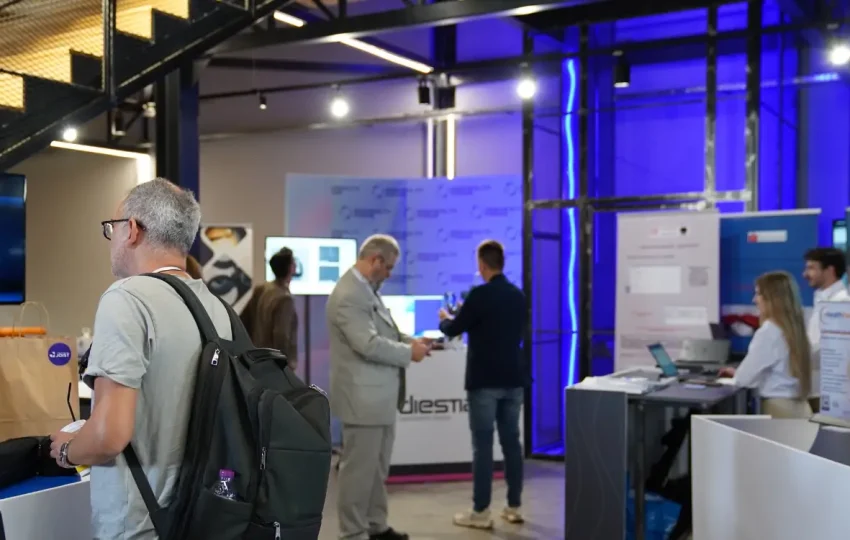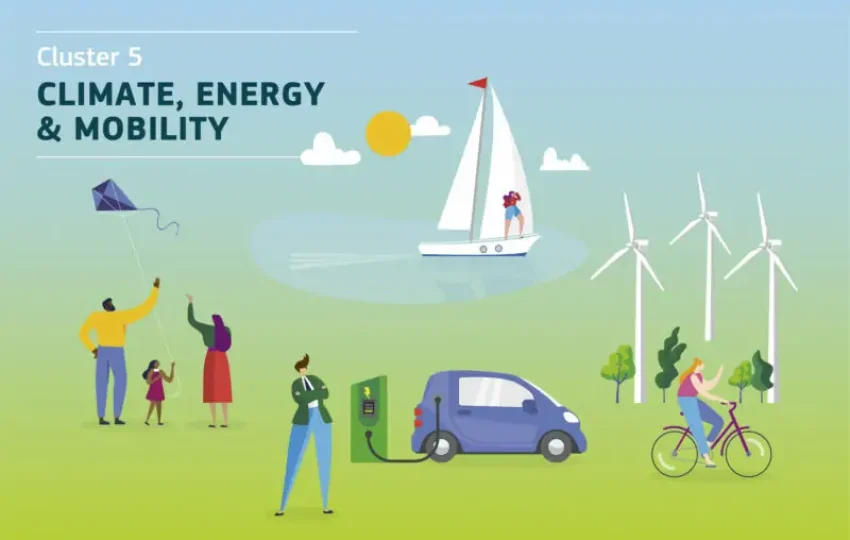Introduction
In the realm of European funding, EU Calls for Proposals serve as vital instruments for driving innovation and collaboration among member states. These calls invite public and private organizations to submit proposals for projects that address pressing challenges, ranging from climate change to technological advancements.
As the competition for funding intensifies, understanding the intricacies of these calls becomes essential for organizations seeking financial support. This article delves into the purpose, impact, and application process of EU Calls, highlighting the types of funding available and the strategic considerations necessary for success.
By navigating this complex landscape effectively, stakeholders can harness the potential of EU funding to foster research, innovation, and societal benefits.
Defining EU Calls: Purpose and Significance
The EU calls for proposals to signify official requests from the European Commission and different EU entities, motivating public and private organizations to submit funding applications for innovative initiatives. These EU calls play a pivotal role in the commitment to advancing research, innovation, and collaboration among member states. Their significance is underscored by the necessity to mobilize resources for addressing urgent challenges, such as climate change, technological advancements, and social inclusion.
By providing financial support, EU calls not only assist individual initiatives through proposals but also foster collaborations among various stakeholders, including research institutions, non-profits, and small and medium-sized enterprises (SMEs). EUcalls is your gateway to these opportunities, offering customized support services from identification to submission. Their proficiency in extensive management and coordination guarantees your initiatives stand out, employing methodologies such as detailed evaluations and strategic alignment with financing criteria.
Additionally, their extensive network facilitates effective partner searches to enhance collaboration for EU funding projects. This collaborative approach enhances the overall efficacy of funded initiatives. For instance, the recent introduction of new rules for Stage-2 Health submissions, which include a blind approach in Stage-1 and lump sum budgeting, aims to simplify the process, thus alleviating administrative burdens and reducing financial errors.
As remarked by Marcin Mońko, Head of Media and Content Sector, ‘The primary investigators must show the ground-breaking nature, ambition, and feasibility of their research plan.’ This emphasis on rigorous proposal standards is essential for ensuring that financial support effectively promotes innovation and collaboration across sectors. Notably, the HORIZON-HLTH-2024-STAYHLTH-01-05 call has an expected success rate of only 2.4%, highlighting the competitive nature of securing EU financial support.
Furthermore, as Europe must prioritize research and innovation to remain competitive, the strategic implementation of EU calls is essential for fostering an environment that encourages research and innovation. Additionally, stakeholders should be mindful of data privacy concerns, as non-necessary cookies are often used to collect personal data via analytics and ads, which is an important consideration in today’s financial environment. For any technical issues, please refer to our support team at support@eucalls.net for assistance.
The Impact of EU Calls on Funding and Collaboration
The EU Calls are pivotal in influencing financial support and collaboration by establishing a structured framework that facilitates access to financial resources. These initiatives are designed to foster cross-border collaboration, enabling organizations to combine their expertise and resources to address intricate challenges. A prime example is Horizon Europe, the EU’s main funding program focused on research and innovation, which has successfully supported numerous initiatives that drive scientific advancement and technological progress.
With our customized plans, you can gain priority participation in EU calls, which will enhance your collaboration on European initiatives through coordinated networks. The emphasis on interdisciplinary approaches within these EU calls encourages the formation of partnerships that might not have otherwise emerged. Consequently, the influence of the EU calls is clear in the improved visibility of initiatives, the heightened innovation capacity among SMEs, and the creation of solutions that provide substantial advantages for society.
Additionally, EUcalls serves as your intelligent database for accessing EU financial opportunities and partner collaboration, unlocking the potential of your ideas with the Idea Pad—a collaborative platform for transforming concepts into projects related to EU calls. As Dimitris from Greece states, ‘The tailored plans have significantly improved our chances of obtaining financial support.’ Furthermore, the upcoming EU calls for the Union quality scheme on organic production methods, which has a deadline of 23.04.2025, presents a timely opportunity for SMEs to engage in agricultural product promotion and benefit from EU funding.
Types of EU Calls and Their Specific Objectives
The EU calls for proposals can be categorized into several key types, each with distinct objectives aimed at addressing various needs within the EU framework. These categories include:
- Research and Innovation Calls: Aimed at promoting progress in scientific inquiry and technological advancement, these calls seek proposals for collaborative endeavors that address specific societal challenges.
They are essential for driving progress in areas crucial to the EU’s strategic interests. - Capacity Building Calls: These initiatives concentrate on improving the abilities of organizations, especially in developing areas, allowing them to participate more effectively in EU initiatives.
This approach not only promotes inclusivity but also enhances the overall effect of EU resources across diverse communities. - Policy Support Calls: Aimed at facilitating the implementation of EU policies, these calls encourage projects that align with the strategic objectives outlined by the European Commission.
Comprehending these categories enables organizations to customize their proposals efficiently, ensuring alignment with the expectations of financial bodies and increasing the likelihood of success.
For context, the United Kingdom contributed €77,655 million, representing 10.70% of total EU contributions, highlighting the scale of EU support and its significance for SMEs. According to a specialist in EU support, ‘Understanding the nuances of each call is critical for SMEs looking to leverage these opportunities effectively.’
Furthermore, the Stability and Growth Pact (SGP) regulates fiscal discipline in the EU, establishing reference values for national budget deficits and public debt, which affects financial opportunities and adherence for entities seeking EU assistance. By utilizing the features of the EU calls platform, such as personalized matching to calls based on organizational profiles and networking with interested partners, SMEs can strategically position their proposals within these categories to enhance their chances of obtaining financial support while contributing to broader EU goals.
Moreover, it is crucial for entities to acquire their Participant Identification Code (PIC) to access EU financial opportunities.
The EU calls platform also provides a ‘Suggested Partners’ feature that assists users in connecting with suitable partners for their initiatives, and the ‘Participation to events’ feature informs users about networking opportunities, further enhancing their collaboration potential.
Application Process for EU Calls
Navigating the application process for EU Calls involves several essential steps that entities must follow to enhance their chances of securing financial support through EU Calls.
- Call Identification: Initially, organizations should conduct thorough research to identify EU Calls that align with their specific goals. The EU Calls platform supports this by providing a personalized matching environment that connects users with open EU Calls tailored to their funding needs based on their profile details and expertise.
- Proposal Preparation: This essential step entails composing a thorough plan that clearly explains the objectives, methodologies, anticipated outcomes, and budgetary requirements. Notably, effective communication of project ideas to evaluators significantly improves success rates.
As Agnieszka Bieńkowska stated, “Its usefulness for differentiating groups of users is verified to establish the possibility for the development of agent model of excellent IT solutions for controlling based on IT reliability.”
- Submission: Proposals must be submitted via designated online platforms, such as the Funding & Tenders Portal, ensuring compliance with submission guidelines.
- Evaluation: Submitted proposals undergo a stringent evaluation process based on established criteria, including innovation potential, impact, and feasibility. The EU Calls platform enhances this process by facilitating networking with interested partners, allowing entities to view profiles and communicate directly.
This ‘Interested Partners’ feature is crucial for fostering collaboration among organizations. Notably, the success rate for the SME Instrument, contingent upon the quality of proposals, stands at 28.2%. Furthermore, statistics for the Marie Sklodowska Curie Actions (2014-2018) emphasize that out of 198,169 applications, 55,213 were eligible, with a total requested EU contribution of 41.74 billion euros, indicating significant interest and support in this area.
- Grant Agreement: Successful applicants will subsequently engage in a grant agreement with the funding body, which outlines the terms of financial assistance and project implementation. Grasping these steps is essential; by mastering these processes and utilizing the tailored matching and networking features of EU Calls, entities can position themselves more advantageously to obtain EU support.
Together, let’s transform your approach to innovation financing, opening doors to unparalleled growth and development.
Challenges and Considerations in Securing EU Funding
Navigating the process of securing financial support through EU Calls can present significant challenges for organizations, especially for small and medium-sized enterprises (SMEs) dealing with EU Calls. Key issues encountered include:
- Complex Application Requirements: The intricacies of proposal development can be overwhelming, particularly for entities with limited experience in EU grant applications.
Proposals often require a thorough understanding of both the project and the financial mechanisms involved. - High Competition: The landscape for EU support is marked by intense competition, as many organizations vie for a share of the available resources.
This reality underscores the necessity for high-quality, distinctive proposals that can effectively capture evaluators’ attention. In 2024, the competition is anticipated to escalate, as indicated by the involvement of 22,479 students in the European Solidarity Corps (ESC) program, emphasizing the range of interest in EU financial opportunities. Kerstin Dörflinger, Press and Communication officer, observes that ‘the enthusiasm for participation in programs like the ESC reflects a growing acknowledgment of the significance of EU support in fostering collaboration and innovation.’ - Regulatory Compliance: Navigating the labyrinth of regulations and guidelines can be both complex and time-consuming for applicants.
Ensuring compliance is essential, as failure to do so can lead to disqualification from the financial support process.
Additionally, in the European phase of the ESC competition, teams will need to prepare a video and a making-of document that reflects on a statistics-related question, further complicating the application process.
To mitigate these hurdles, organizations are encouraged to utilize resources available through EU calls, such as strategic partnerships and expert insights, to enhance their proposals. The platform known as EU calls functions as a smart database that links project partners and improves collaborative efforts, enabling SMEs to explore financial opportunities effectively.
For any questions or concerns regarding EU financial opportunities, we encourage you to check our FAQs or contact us directly for assistance. A relevant case study is the EU’s trade with the rest of the world, which accounted for 17.6% of GDP for goods in 2022. This reflects the EU’s position as a major global trader and highlights the importance of reinforcing trade links and manufacturing capacity to address geopolitical risks.
By leveraging the resources and expertise within EU calls, organizations can significantly enhance the quality of their proposals and improve their prospects of securing funding.
Conclusion
EU Calls for Proposals represent a significant opportunity for organizations looking to secure funding for innovative projects across Europe. By understanding the purpose and objectives of these calls, stakeholders can effectively align their proposals with the needs of the EU. The emphasis on collaboration and interdisciplinary approaches fosters partnerships that enhance the visibility and impact of funded initiatives, ultimately driving scientific advancement and technological progress.
The article highlights the various types of EU Calls, including those focused on:
- Research
- Capacity building
- Policy support
Each designed to address specific challenges within the EU framework. By navigating the application process with precision, organizations can increase their chances of success. The importance of thorough proposal preparation, compliance with guidelines, and strategic networking cannot be overstated in this competitive landscape.
While challenges such as complex application requirements and high competition persist, leveraging resources like the EUcalls platform can significantly aid organizations in overcoming these hurdles. By utilizing tailored support services and engaging in effective collaboration, stakeholders can not only enhance their proposals but also contribute to the broader goals of research and innovation within the EU. Embracing the potential of EU funding is essential for fostering growth, innovation, and societal benefits across member states.


